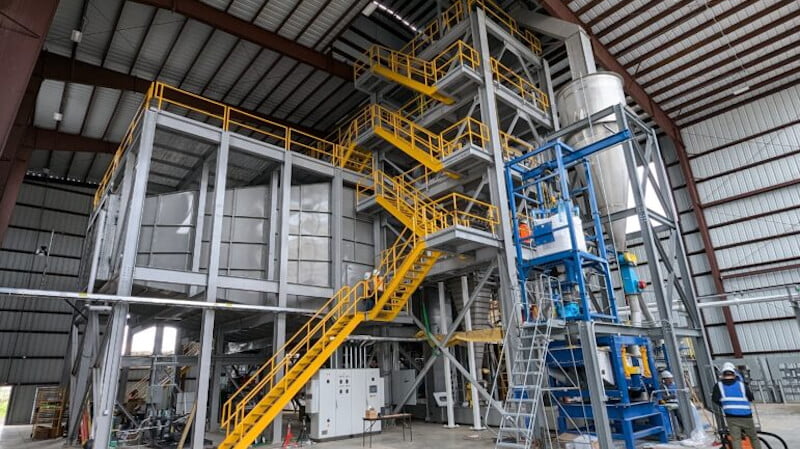
The US start-up 280 Earth has presented a new approach to reducing CO2 emissions and has received millions for it. Among other things, the company wants to make the data centers of Google and Facebook group Meta more sustainable.
The need for data centers continues to grow. This leads to an unprecedented demand for energy, which also affects the climate. The US start-up 280 Earth, which once belonged to Google's parent company Alphabet, now claims to have developed a solution to the problem. This is because training AI in particular consumes more and more electricity.
As a result, data centers contribute significantly to Big Tech's CO2 emissions. However, 280 Earth's technology aims to reduce emissions using various methods. For example, by filtering CO2 from the air, using the waste heat from servers and generating water, the data centers should be able to be cooled more efficiently.
Big Tech’s CO2 emissions: Data centres should become more sustainable
The company uses modules with absorbent materials, so-called sorbents, to filter CO2 from the air. In contrast to large direct air capture (DAC) systems, 280 Earth's technology is said to be more efficient. This is because classic systems work with large quantities and high temperatures, while the start-up's system continuously switches between two chambers.
This saves energy by avoiding the energy loss caused by repeated heating and cooling. In addition, 280 Earth's technology can extract water from the surrounding air humidity. This makes the approach attractive for customers who need both water and waste heat. Two to four thousand liters of water can be extracted from one ton of absorbed CO2 in this way.
First pilot plant to filter 61,600 tons of CO2 by 2030
Although the technology appears promising, there are concerns about cost, safety and the potential to delay the transition away from fossil fuels. Experts stress that carbon removal is not an alternative to avoiding greenhouse gas emissions. 280 Earth recently completed its pilot plant in Oregon, which is expected to capture 61,600 tons of CO2 by 2030.
Currently, the cost is over $600 UD per ton of CO2, which shows how expensive it would be to capture a larger share of climate pollution. But 280 Earth CEO John Pimentel is confident that scaling up carbon removal will bring costs down. He believes this technology can buy us time to transition to clean energy.
Also interesting:
Source: https://www.basicthinking.de/blog/2024/07/16/nachhaltige-datenzentren/


